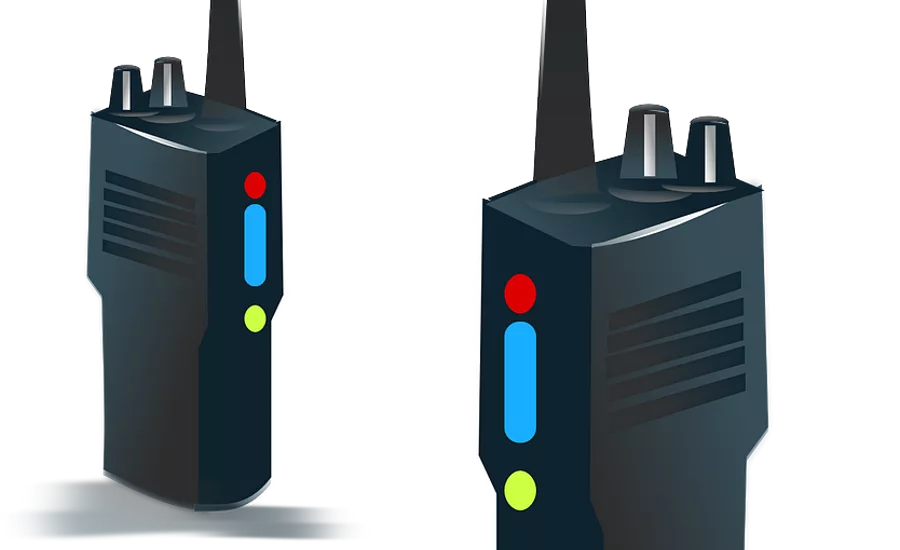Communication devices for security officers

Many companies use security guards as part of their overall security programs. Security guards make patrols, respond to security situations and provide other services to company employees and the public. For security guards to effectively do their jobs they have to have a quality communication system in place. This system needs to allow security guards to call for backup when needed as well as communicate with their supervisors.
The two most common methods of security guard communications in use today are cell phones and two-way radios. Security managers can have difficulty in deciding which system is best used on a particular job site. Should they use two-way radios, cell phones or both?
Pros and cons of two-way radios
Two-way radios have been used by businesses, law enforcement and security communication for over 50-years. Prior to cell phones two-way radios were often the only option when people wanted two-way communication on the go.
Two-way radios provide many benefits to security guards. Radios are easy to use, reliable, have no fees, have many accessories designed for security use and allow one-to-many communications meaning one person can speak over the air to multiple people at once.
Michael Morrison, President of LionHeart Security Services says the main benefit of two-way radios is safety. “Two-way radios are the only communication device that allows a guard to instantly contact their team while still keeping their hands free to access their weapon or defend themselves.”
Although, two-way radios can be effective on a job site, they lack the further reach that cellphones provide, unless repeaters are installed.
Two-way radios consist of two parts, a transmitter and a receiver. These two components are combined into a transceiver. There are three types of transceivers, portable transceivers, mobile transceivers and base station transceivers. Security departments will use a combination of transceiver types with security guards walking the property using portable transceivers, mobile transceivers are used in patrol vehicles and base station receivers are used in the command centers.
Pros and cons of cell phones
The benefits of cell phones include wide coverage areas, the ability to make and receive phone calls, the ability to send and receive text messages, emails and send digital reports. It is also more difficult for people to eavesdrop on security communications.
The downside to cell phones is they: are more difficult to use; are often less rugged and reliable than radios; are difficult to use in noisy areas; have few accessories designed for security use; only allow one-to-one communication. There are also ongoing fees for cellular service providers.
Unknown to many people, cell phones are a form of radio receiver. The transceiver transmits and receives low-power radio signals to and from radio stations known as cell towers. Each cell tower covers a small area and communicates with a centralized computer that manages communications between cell phones and the towers. As a person moves the computer keeps track of the person's location and changes the cell signal to other towers as needed.
When security guards are working on large construction sites, antennas similar to those used with two-way radios may be needed.
Recommended communication system for security guards
Both devices have their benefits. Cell phones are useful when you need to contact outside sources for help when working a security job and are also beneficial when a guard needs to send digital reports. Two-way radios provide instant communication and are more reliable than cell phones. The simplicity and reliability of two-way radio systems makes them the preferred choice for security guard communications. The only exception is for small organizations where there may only be one security guard on duty. In this case a cell phone would be the better communication device.
However, both of these systems are used in different ways. Morrison recommends that security guards and companies use a combination of these devices. “If a business has multiple guards patrolling a job site the guards need to easily communicate with each other and two-way radios are essential for fast and easy communication,” Morrison said. “The guards also need to be able to call for law enforcement and stay in touch with supervisors. Cell phones are best used for these situations.”
By combining these two systems when working a security job, the guards are better prepared to communicate with their fellow security guards on site while having the capability to receive additional help when necessary.
Looking for a reprint of this article?
From high-res PDFs to custom plaques, order your copy today!






